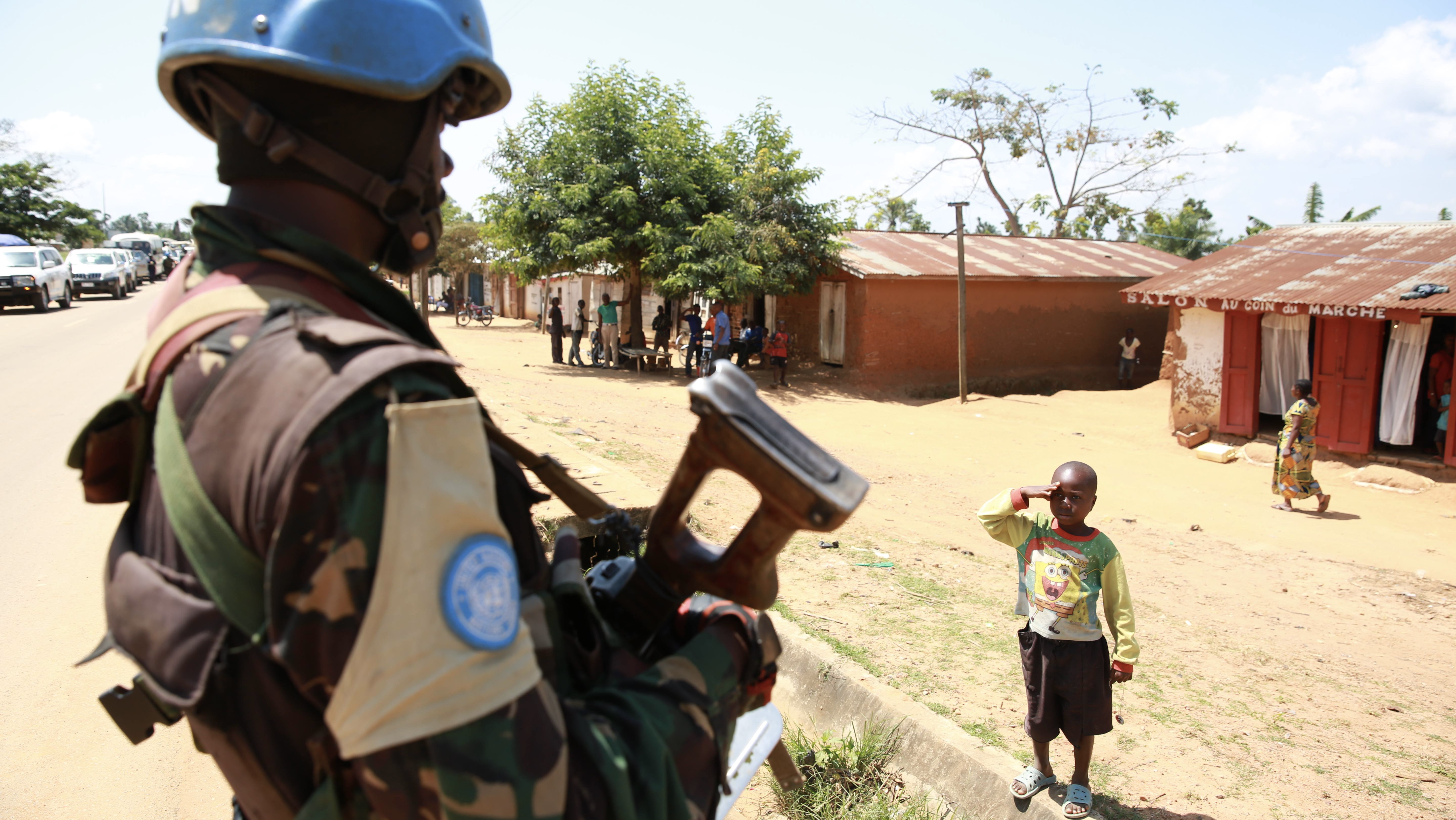
11 November 2021, 17:00–18:15 CET
Click here to register for this session.
A transition for states from committing their own forces in conflict locations to supporting indigenous forces may require long-term engagement until there is confidence in the ability of a government or regime to manage on its own. Working through and with local forces can include a range of combat support functions, training and exercises and the use of tailored force packages for discrete missions.
The successful implementation of measures to protect civilians will help to achieve the strategic and operational objectives of military operations. To increase the probability the measures will be effective, a shared ‘theory of victory’ should incorporate a common perspective on the protection of civilians (POC). This should be based on a joint assessment of specific threats that civilians face and an agreed mitigation strategy.
Assessment and mitigation are likely to require cooperation with a wide range of partners (including international organizations and non-governmental organizations) as well as strategies for effective engagement with less like-minded actors.
The session will address the following questions:
- What is a shared ‘theory of victory’ and how can it be realized in the shortest time at the lowest cost?
- What are the most effective methods for developing risk assessments that reveal the motives and strategies of the perpetrators of attacks on civilians?
- Does the threat-based approach to POC differ in respect to state and non-state armed actors?
- What are the instruments for real-time monitoring of respect for the agreed POC measures?
Moderator
|
|
Dr Ian Anthony Dr Ian Anthony is Director of SIPRI’s European Security Programme. He has published numerous books on issues related to arms control, disarmament and export control. |
Discussants
|
|
Anna Ek Country Director, Swedish Committee for Afghanistan |
|
|
Marla Keenan Marla B. Keenan is an Adjunct Senior Fellow at the Stimson Center. Her areas of expertise focus on issues relating to international security, including human rights in armed conflict, protection of civilians, civilian harm tracking and analysis, and civil-military relations in armed conflict. Marla is also an International Security Program Senior Fellow at New America, working to strengthen partnerships between NGOs and academic institutions on applied research in armed conflict. Marla was senior director of policy and advocacy and previously senior director of programs at Center for Civilians in Conflict (CIVIC), a Washington, DC-based NGO working on armed conflict and the protection of civilians. She led the design, management, and successful implementation of outcome-focused field programs in active conflict zones. Marla has conducted high-level advocacy with international and regional organizations, including the United Nations, African Union, and NATO. Marla holds a Master of Science in Public Policy and Management with a double concentration in policy analysis and international policy from the H. John Heinz III School of Public Policy & Management at Carnegie Mellon University. She completed her undergraduate degree in Business Administration at the University of Arizona. Marla is a National Security Fellow at the Truman National Security Project. |
|
|
Larry Lewis Dr. Larry Lewis spearheaded the first data-based approach to protecting civilians in conflict, applying the scientific method to mitigate civilian harm by analyzing military operational data in conjunction with open-source data. Formerly the State Department senior advisor on civilian protection (2015–2017), he was a primary author of the U.S. national policy on civilian protection (the 2016 CIVCAS Executive Order). He has worked extensively to help militaries reduce civilian casualties in their operations, leading multiple studies to determine the causes of civilian casualties and to develop tailored, actionable solutions: policy and practical measures complimentary to existing protections and principles in international humanitarian law. He was lead analyst and co-author (with Dr. Sarah Sewall) for the Joint Civilian Casualty Study, which General David Petraeus described as “the first comprehensive assessment of the problem of civilian protection.” Dr. Lewis has also worked to improve civilian harm mitigation policies and practices internationally. A more recent focus area is AI and autonomous weapons, first during his time at the State Department and then as research director at CNA. |
|
|
Sahr Muhammedally Sahr Muhammedally is a Director for MENA & South Asia at the Center for Civilians in Conflict (CIVIC). She leads advocacy and strategy on civilian protection and engages governments and armed actors on civilian harm mitigation policies and practices during all phases of operations. Sahr writes and presents on civilian protection, urban war, and develops policy papers and scenario based training materials on civilian harm mitigation. Sahr has worked for two decades in the area of armed conflict, human rights, and counterterrorism and undertaken field work in Afghanistan, China, Indonesia, Iraq, Malaysia, Pakistan, Syria, and Yemen. Prior to joining CIVIC, Sahr worked at Human Rights Watch, Human Rights First, and practiced law at Gibbons P.C. in New York. |
|
|
Ambassador (ret.) Dr Fred Tanner Fred Tanner is currently a Visiting Professor at the Graduate Institute, Geneva and Associate Fellow at the Geneva Centre for Security Policy (GCSP). He has extensive work experience with the OSCE and served among other responsibilities as Senior Adviser to the Secretary General. He was also the OSCE Project Leader of the ‘’Panel of Eminent Persons for European Security as a Common Project”. He previously served for seven years as Director of the Geneva Centre for Security Policy (GCSP) and he worked for the Swiss MFA in the rank of Ambassador over a period of 10 years. He spent four years in Malta as Director and Resident Professor at the Mediterranean Academy of Diplomatic Studies. He also conducted research as Practitioner-in-Residence at the Korbel School of International Studies, University of Denver and the Stimson Center, Washington, DC. Fred Tanner currently serves in Vienna on the Advisory Board of the Friedrich Ebert Stiftung Regional Office for Cooperation and Peace in Europe, as well as the International Institute for Peace (IIP). He also served on the United Nations Secretary General’s Advisory Board on Disarmament Matters, the High-level Panel on Early Warning and Rapid Reaction of the Organisation Internationale de la Francophonie (OIF), and was a member of the Academic Advisory Board of the NATO Defence College (NDC). Fred holds a PhD and a Master's Degree from the Fletcher School of Law and Diplomacy at Tufts University, and a Bachelor’s degree from the Graduate Institute of International and Development Studies (HEID), Geneva. He holds the rank of Major (ret.) in the Swiss Army. |
For additional information on this session, please contact the SSC 2021 Team at sthlmseccon@sipri.org.




